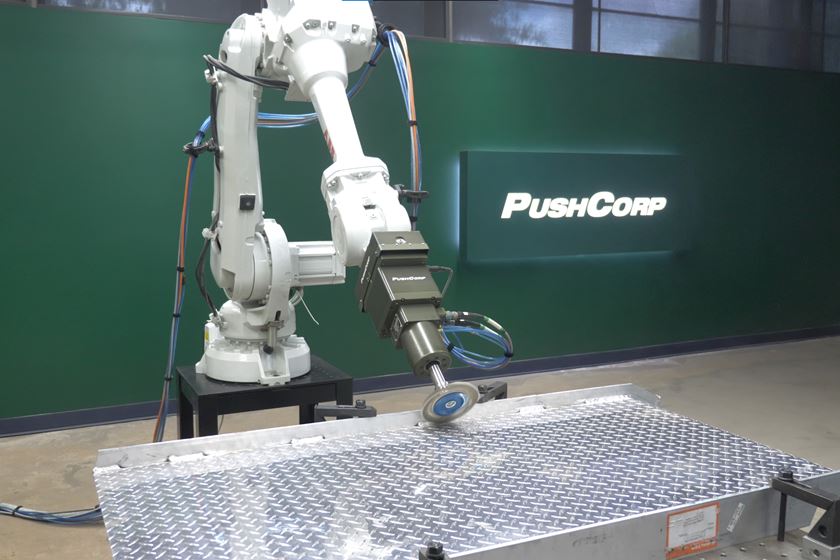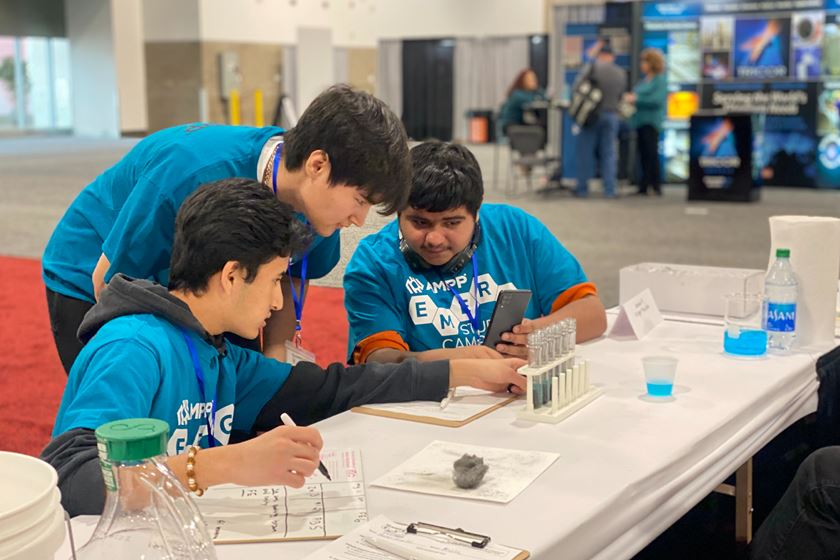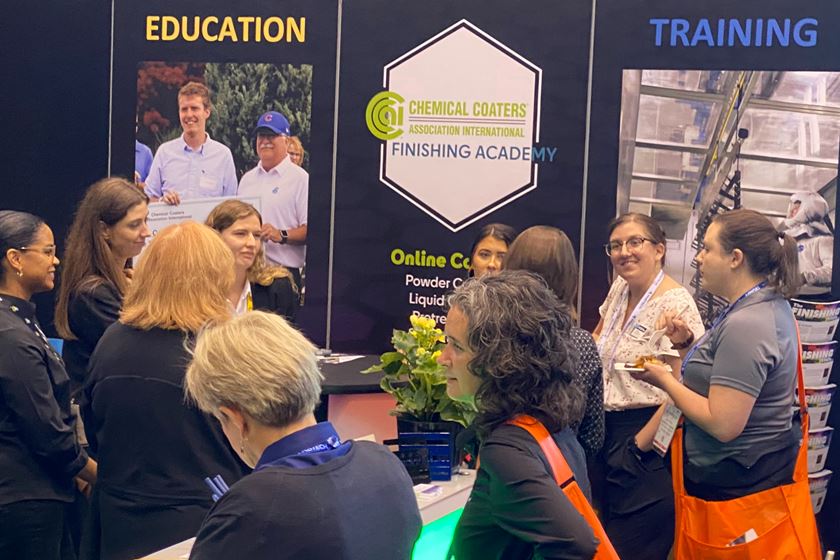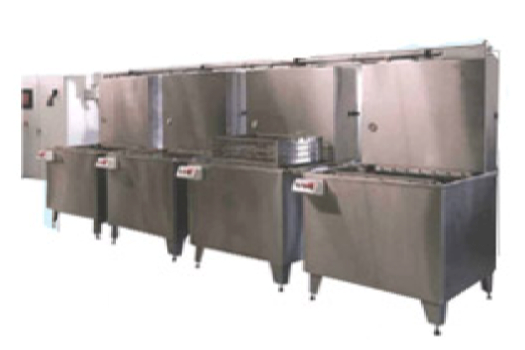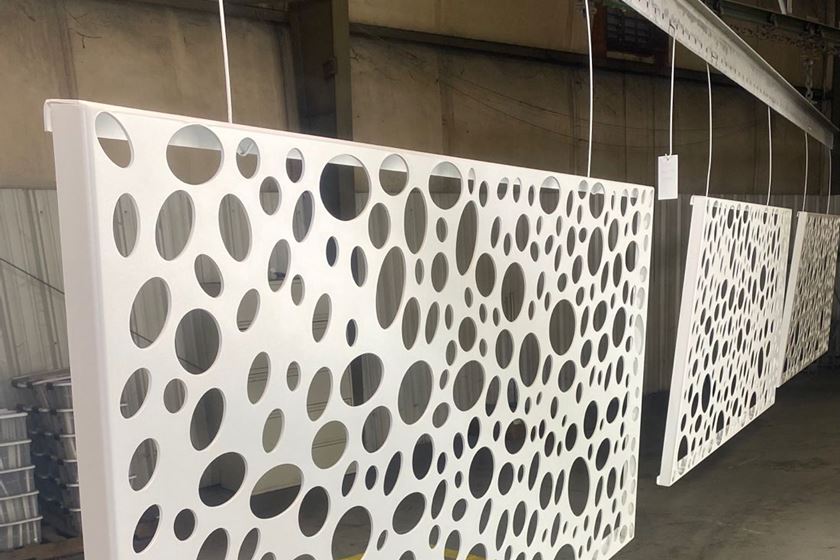Masterack Goes Powder
The company had several options on how to comply with tightening VOC regulations. It chose to install a new powder coating system...
#regulation
Leggett and Platt, Inc. is a leading supplier of specialty components for the furniture and bedding industries. In addition, it manufactures finished products, including sleep-related, private-label furniture and a variety of non-furnishing items. By combining strategic acquisitions, product innovation and strict controls over manufacturing costs, the company has achieved record sales for the past three years.
The company operates more than 150 manufacturing facilities. The Masterack Division operates four of those, the largest in Atlanta, Georgia. Thoroughly modern in its thinking and its application of technology and production controls, Masterack is also distinctive in other ways. Most notably, it places extraordinary value on the skills and experience of its 360-member work force.
Featured Content
Numerous workers boast 40 years or more experience with the company. The most experienced company employee, Thomas "Mr. June" Garbutt, will commemorate 63 years of continuous service this year.
Masterack's philosophy of prioritizing its people and their contributions to the company's success influences every corporate decision. It was a major factor in the firm's decision on how to respond to new environmental requirements.
For approximately 30 years, the company finished its ferrous metal products using a conventional liquid spray system. Tightening restrictions on VOC emissions made change inevitable. The options Leggett and Platt considered included outsourcing some or all of the finishing, reducing production, relocating part or all of the division to a site outside the city or re-engineering the production line and installing a powder finishing system. Also affecting the decision was the plant itself. The company had outgrown the facility and extensive remodeling or expansion would be required in the near future.
Of the four alternatives, the company only seriously investigated relocation or a new powder line. "The zero-VOC advantage of going to powder was significant," said Bob Stilz, senior manufacturing engineer. "But the decision to change to powder was made in large part because we wanted to maintain our work force. We recognized that many of our workers would be unable to move with the company."
The company defines itself as a job shop. Therefore it needed a flexible coating line, since its products were likely to diversify even more over time.
A team was assembled that included representatives from the company's chemical vendor (Coral Chemical), paint supplier (Crow Industrial Coatings), application equipment manufacturer (Nordson Corp.), and four members of Masterack's production management, lead by Bob Stilz.
For Mr. Stilz, particularly, the stakes were high. In his nine years with the company, his experience with finishing had included electrostatic wet spray and electrocoating, but not powder coating. "This would also be my first ground-zero pro-ject," he added. For the total program (building and powder line), the budget was six million dollars, and the corporate standard on payback was two years.
The team began by simply asking many questions. "We asked the chemical people for their best thinking on a spray cleaning system, based on a given time and temperature. We asked the powder application experts to write a specification based on a maximum silhouette of three-by-five-by-10 ft. We asked everyone for recommendations on a system vendor who understood what we needed now and for the future," stated Mr. Stilz. A comprehensive bid package was supplied to five leading vendors.
The system consists of nine modules: five-stage washer, dry-off oven, powder booth, environmental room, transit tunnel, bake oven, monorail conveyor, cooling tunnel and rack burn-off oven. The system was limited to a maximum 1,500 linear ft, with a cycle time of one-hour forty-five min or less. Parts had to be cured enough to allow in-line packaging immediately upon exiting the tunnel.
In early 1993, following two years of discussion, a turnkey system contract was awarded to George Koch Sons, Evansville, Indiana. Notably, it was Koch equipment that was being replaced after 30 years of continuous use. "A schedule was established," said Mr. Stilz. "It promised 100 pct conversion from wet paint to powder and production in 12 months from the date of our order.
In the system, parts are hung manually then spray washed in an alkaline cleaning solution. The five-stage washer features counterflow rinsing and the dwell areas to reduce overflow and contamination as well as minimize wastewater generation. A special nozzle configuration and specific nozzle pressure further optimize rinse efficiencies. Oil separation extends the service life of the cleaner.
Parts receive a 90-sec conversion coating of iron phosphate following cleaning. Zinc phosphate, the original choice, would have complicated wastewater management since the company already discharged small quantities of zinc due to its use of Zincrometal and processing of several zinc-plated components. A carefully engineered iron phosphate system provided the metal stabilization required, without the hazardous discharge. Phosphating is followed by a 30 sec ambient rinse and 30 sec non-chrome sealer. Parts are dried for 10 min in a high-velocity oven at 250F.
In the two Nordson booths, which operate alternately, a hybrid polyester/epoxy is applied. In applications that demand high exterior durability 100 pct polyester powder is applied. Seven applications modules are used to apply 20 colors. All but one of the modules, the one used for small quantities, is set up for powder reclaim.
"For one thing," he explained, "powder does help sell products. One mil was always the goal, but it was hard to achieve with wet spray. We consistently get one mil with powder." The powder bake oven is a convection type. A 20-min cycle at 400 to 450F achieves a metal temperature of 375F, the optimum temperature for even curing. The system is set up to run at 14 fpm but has the capacity to run at seven to 21 fpm. The monorail conveyor, supplied by Greenline Corporation, is an open I-beam that accommodates 100 lbs per trolley. "The system," said Mr. Stilz, "is engineered to move a lot of weight with high reliability over a long time."
Following the successful startup of the powder line, Leggett and Platt purchased a wastewater treatment system. The system accommodates every wastewater source and is capable of batch or continuous operation. The system also has a footprint of less than 1,000 sq ft.
The wastewater system has eleven modules. Transfer pumps are networked to a level-control system that senses the presence of liquid and delivers material to a 9,000-gal holding tank. Concentrates are bled into the system and rinse waters are transferred to a two-stage neutralization system.
Neutralized wastewaters are overflowed to a flocculator where a polyelectrolyte is added to separate the solids/metals from the water. Liquids then overflow to a clarifier where solids settle out and clean water overflows to a final monitoring tank prior to discharge.
Sludge is periodically pumped through a filter press where a 30 to 35 pct solids cake is removed for landfill. Chemical addition is automated. A sonic flow device engenders no contact with the liquid, thus maximizing both accuracy and service life.
A simplified graphic display provides operating personnel with a clear and complete snapshot of system performance in real time. Flow and final pH records are generated automatically.
"This plant was the company's first opportunity to install state-of-the-art, zero-VOC finishing and fully automated wastewater management," said Mr. Stilz. "We can only say that its success has been - in our view, and in the view of our customers - total.
The company has been pleased with the environmental benefits of its system also. The Division was recognized for its "commitment to product and environmental quality" in an article From the Source, a quarterly publication of the Georgia EPA Pollution Prevention Assistance Division. In addition to recognizing Masterack's accomplishment of going from over 100 tons of VOCs per year to zero emissions, the article specifically praised "the achievement of a safer working environment, reduced paperwork and reporting, and its commitment to long-time employees."
RELATED CONTENT
-
Vacuum Deposition and Coating Options
This overview takes a look at vacuum deposition technologies as processes that may be used to create coatings that can be substituted for or enhances the properties of electroplated coatings. Initially, this work discusses trends in metal finishing and environmental regulation.
-
Cleaning, Pretreatment to Meet Medical Specs ISO 13485 or FDA 21 CFR820
Maximilian Kessler from SurTec explains new practices for industrial parts cleaning, metal pretreatment and decorative electroplating in the medical device industry.
-
Is Your Electroplating Waste Hazardous?
Some that bears precious metals is, and there are a host of regulations to consider when recycling.














